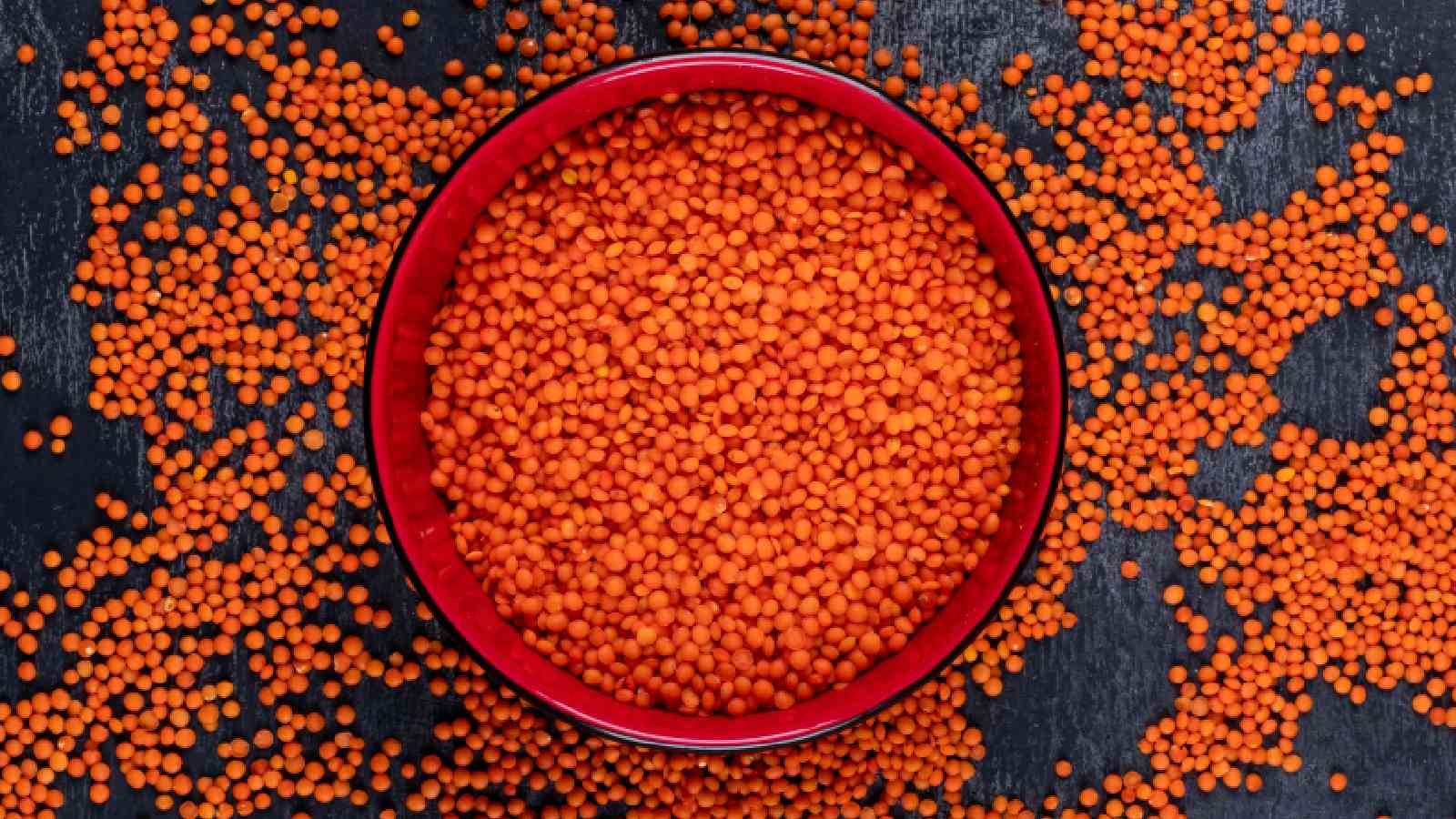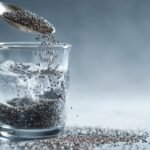Soaking dal enhances digestion, boosts nutrient absorption, and minimises discomfort. Unlock the secrets to healthier meals with simple tips!
Dal, a staple in many households, is celebrated not only for its delicious taste but also for its remarkable nutritional benefits. While it’s a favourite for many, some individuals experience bloating, gas, or a feeling of heaviness after consuming it. If you’ve faced these issues, you might be surprised to learn that the problem may not lie with the dal itself. Instead, it could be a result of skipping a critical pre-cooking step: soaking dal before cooking it!
Does soaking dal have benefits?
Soaking dal is a simple yet transformative practice. Here’s why it is important for better digestion and nutrient absorption:
1. Removes anti-nutrients
- What are anti-nutrients? Dal naturally contains components like phytic acid and tannins, which can hinder the absorption of critical minerals such as iron, zinc, and calcium.
- Soaking benefits: By soaking dal, you significantly reduce the presence of these anti-nutrients, allowing your body to absorb more nutrients more effectively.
2. Breaks down oligosaccharides
- Understanding oligosaccharides: These are special sugars present in many legumes, including dal. They can be tough for our digestive system to break down.
- Soaking advantages: Soaking helps wash away these sugars, minimising digestive discomfort and promoting a smoother digestion.
3. Activates enzymes
- Sprouting process: Soaking dal initiates the sprouting process, awakening dormant enzymes.
- Nutrient bioavailability: This activation enhances the bioavailability of proteins, B vitamins, and minerals, allowing for better absorption and significantly contributing to your daily nutritional requirements.
4. Reduces cooking time
- Efficiency in cooking: Soaked dal cooks faster, which not only retains nutrients effectively but also results in softer, better-textured dishes.
- Nutrient preservation: A shorter cooking time translates to less nutrient loss, ensuring that you reap all the health benefits of this powerhouse legume.
How much time should dal be soaked?
To optimise the soaking benefits, it is important to know the correct soaking times for various types of dal. Here’s a handy guide by nutritionist Leema Mahajan:
- 30 minutes: Moong dal (without skin), lal masoor, arhar dal
- 2-4 hours: Moong chilka, urad chilka, chana dal
- 6-8 hours: Sabut moong, sabut masoor, sabut urad, lobia, moth
- Overnight: Rajma, safed chana, kala chana
Pro tip: When preparing rajma or chana, consider adding whole spices like bay leaf, badi elaichi (black cardamom), and long pippali (long pepper) for added flavour. These can help reduce the feeling of heaviness and improve digestion.
What is the nutritional content of dal?
Dal, in its various forms, offers a diverse range of nutritional components and health benefits that contribute to a balanced diet. Dietician Sweedal Joel Trinidade shares an overview of the key types of dal and their nutritional content:
-
Moong dal (split green gram)
- Calories: 347 per 100g (uncooked)
- Protein: 24g
- Fibre: 8g
- Fat: 1g
2. Lal masoor (red lentils)
- Calories: 358 per 100g (uncooked)
- Protein: 25g
- Fibre: 8g
- Fat: 1g
3. Arhar dal (toor dal)
- Calories: 360 per 100g (uncooked)
- Protein: 22g
- Fibre: 4g
- Fat: 1.5g
4. Moong chilka (whole green gram)
- Calories: 347 per 100g (uncooked)
- Protein: 24g
- Fibre: 8g
- Fat: 1g
5. Urad chilka (split black gram)
- Calories: 341 per 100g (uncooked)
- Protein: 25g
- Fibre: 8g
- Fat: 1g
6. Chana dal (Bengal gram)
- Calories: 364 per 100g (uncooked)
- Protein: 22g
- Fibre:10g
- Fat: 6g
7. Sabut moong (whole green moong)
- Calories: ~347 per 100g (uncooked)
- Protein: ~24g
- Fibre: ~8g
- Fat: ~1g
8. Sabut masoor (whole red lentils)
- Calories: 352 per 100g (uncooked)
- Protein: 24g
- Fibre: 8g
- Fat: 1g
9. Sabut urad (whole black gram)
- Calories: 341 per 100g (uncooked)
- Protein: 25g
- Fibre: 8g
- Fat: 1g
10. Lobia (black-eyed peas)
- Calories: 343 per 100g (uncooked)
- Protein: 23g
- Fibre: 9g
- Fat: 0.6g
11. Moth (moth beans)
- Calories: 339 per 100g (uncooked)
- Protein: 22g
- Fibre: 6g
- Fat: 0.8g
12. Rajma (kidney beans)
- Calories: 331 per 100g (uncooked)
- Protein: 23g
- Fibre: 6g
- Fat: 0.8g
13. Safed chana (white chickpeas)
- Calories: 364 per 100g (uncooked)
- Protein: 19g
- Fibre: 17g
- Fat: 6g
14. Kala chana (black chickpeas)
- Calories: 339 per 100g (uncooked)
- Protein: 20g
- Fibre: 10g
- Fat: 4g
Cooking tips for digestive health
Once your dal is soaked correctly, keep these cooking tips in mind for a light and digestion-friendly meal:
- Discard the soaking water: After soaking, always discard the water to prevent any residual anti-nutrients or sugars from entering your dish.
- Use fresh water for cooking: Start with fresh water to cook your soaked dal, ensuring you avoid any compounds that might hinder digestion.
- Add a tadka: Enhance flavours with a tadka of hing (asafoetida), ginger, and jeera (cumin). This traditional tempering not only enhances flavour but also provides digestive benefits.
What are the nutritional benefits of dal?
Incorporating soaked dal into your meals comes with a multitude of health benefits:
- High in protein: Dal serves as an excellent source of plant-based protein, making it an ideal option for vegetarians and vegans alike.
- Rich in fibre: The high fibre content promotes healthy digestion and can aid in weight management by keeping you fuller for longer.
- Low in fat: With its naturally low fat content, dal is a healthy choice for anyone seeking to reduce their fat intake while enjoying a nutrient-rich food.
- Packed with nutrients: Dal is rich in necessary vitamins and minerals, including B vitamins, iron, magnesium, and potassium, all of which are important for overall health.
- Blood sugar control: The fibre and protein in dal can help regulate blood sugar levels, making it a good choice for those with diabetes.
- Heart health: Consuming dal can help lower cholesterol levels and support heart health due to its heart-healthy fibre and nutrient profile.
Adding a variety of dals into your diet can ensure you receive a broad spectrum of nutrients while enjoying their delicious flavours and textures.
Disclaimer: At Health Shots, we are committed to providing accurate, reliable, and authentic information to support your health and well-being. However, the content on this website is intended solely for informational purposes and should not be considered a substitute for professional medical advice, diagnosis, or treatment. Always consult a qualified healthcare provider for personalised advice regarding your specific medical condition or concerns.








